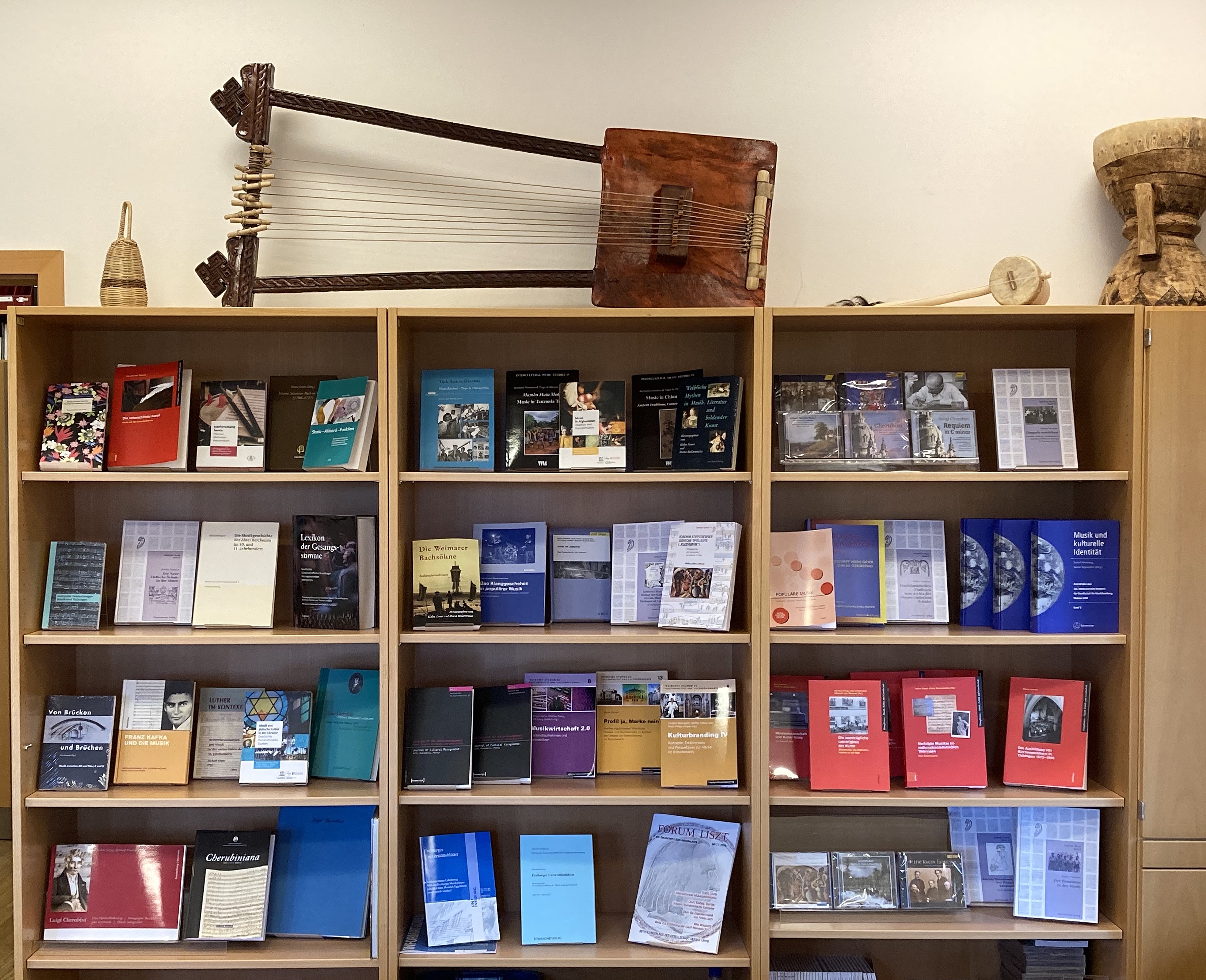M.A. course in Musicology
Master’s degrees are postgraduate courses, i.e. they follow a degree that has already been completed. The Master’s degree in Musicology, offered by the Department of Musicology Weimar-Jena, generally follows a Bachelor of Arts degree and culminates in a Master of Arts degree (M.A.). The standard duration is four semesters.
As a research topic at the Department of Musicology Weimar-Jena, music involves engagement with a varied range of topics and methods, which are also reflected in the M.A. course in Musicology. Half of the degree serves to offer deeper knowledge of the core disciplines of Musicology, while the other half enables students to select a study profile, thereby specialising in a particular sub-area within the subject. The offered profiles within the M.A. in Musicology are following below.
The detailed regulations, module catalogues, sample timetables and lecture lists can be found under the corresponding links. If you have any questions, please contact the student counselling service or the student representatives.
Die vielfältige thematische und methodische Auseinandersetzung mit dem Forschungsgegenstand Musik am Institut für Musikwissenschaft Weimar-Jena spiegelt sich auch im Studiengang M.A. Musikwissenschaft wider. Eine Hälfte des Studiums dient der Vertiefung der Kerndisziplinen der Musikwissenschaft, während der jeweils anderen Hälfte spezialisieren sich die Studierenden durch die Wahl eines Studienprofils auf einem bestimmten Teilgebiet innerhalb des Studienfaches. Folgende Profile werden im M.A. Musikwissenschaft angeboten:
Bewerbungsablauf
Im Falle des Studiengangs M.A. Musikwissenschaft erfolgt die Bewerbung über das Online-Portal der HfM. Nach Eingang der Unterlagen prüft der Bachelor-Prüfungsausschuss des Instituts, ob die Voraussetzungen für das Studium erfüllt sind. Bei erfüllten Voraussetzungen erhalten die Bewerber einen Annahme-Bescheid verbunden mit der Aufforderung zur Einschreibung an der HfM. Die Einschreibung erfolgt schriftlich, mithilfe eines entsprechenden Formulars und setzt die Einzahlung des aktuellen Semesterbeitrags voraus.
Bei Fragen zum Bewerbungsprozess für BA und MA Musikwissenschaft, wenden Sie sich bitte an:
Jana Nickol (jana.nickol(at)hfm-weimar.de | 03643 555 230)
Application process
In the case of the M.A. course in Musicology, the application is made via the UoM’s online portal. After the documents have been received, the departmental bachelor’s examination committee reviews whether the requirements for the degree have been met. If the conditions are met, the applicants receive a decision of acceptance, together with a request to enrol at the UoM. Enrolment is carried out in writing, using the appropriate form, and payment of the current semester fee is a prerequisite thereof.
Please note: your application is only valid once you have successfully completed your application online and sent all your application documents by post. Additional information regarding application deadlines and documents can be found under ‘Application’.
